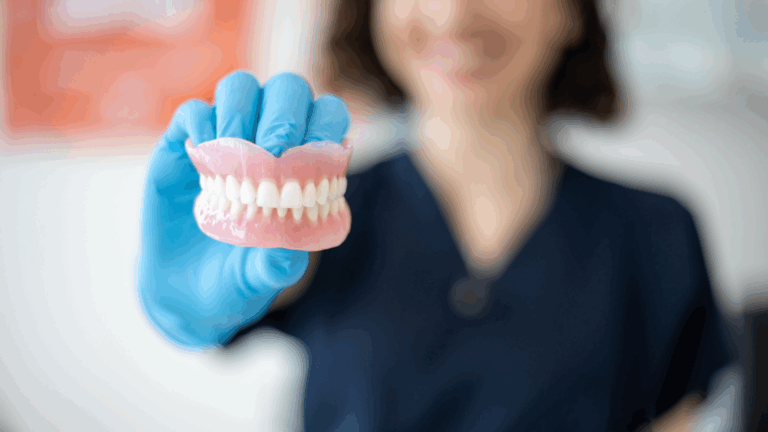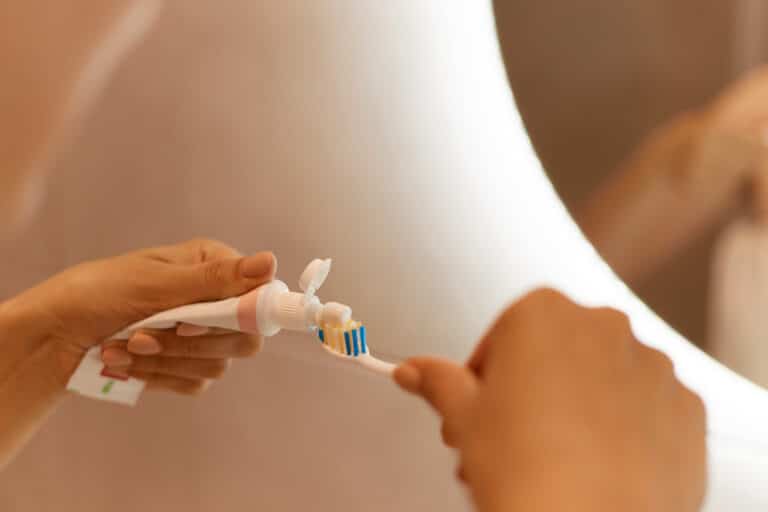Looking for a way to achieve brighter teeth without having to go through an expensive and time-consuming procedure? You’re in luck! In this blog post, we will discuss everything you need to know about teeth whitening. We’ll talk about the different methods available, the benefits of each one, and how to choose the right option for you. By following our tips, you’ll be on your way to a brighter smile in no time!
How to whiten teeth
There are a few different ways that you can whiten your teeth. The most popular method is teeth whitening strips, which are thin, flexible strips that are coated with a peroxide-based bleaching gel. To use them, you simply apply the strip to your teeth and leave it on for the recommended amount of time. Another popular method is teeth whitening trays, which are clear plastic trays that fit over your teeth. The tray is filled with a peroxide-based bleaching gel, and you wear it for the recommended amount of time. Lastly, in-clinic teeth whitening is another great option. higher concentrations of hydrogen peroxide is usually applied as the procedure is conducted by a medical professional.
Benefits of teeth whitening
Teeth whitening is a great way to improve your appearance and boost your confidence. In addition to making your teeth look brighter, teeth whitening can also help to remove stains and discoloration. If you are considering teeth whitening, it is important to understand the benefits and drawbacks of each method before making a decision.
How effective is teeth whitening?
The effectiveness of teeth whitening is all about the method used. However, it is important to note that not all teeth are equally responsive to bleaching. Teeth that are heavily stained or discolored may require multiple treatments to achieve the desired results.
Off-the-shelf Teeth whitening Strips

Do teeth whitening strips actually work?
While it is the most wallet-friendly and convenient option, some whitening strips contain chlorine dioxide, which could destroy enamel on your teeth. This option also likely requires frequent usage in order to achieve desired results.
Do teeth whitening lights work?
There is an increasing number of teeth whitening kits with blue LED sold over-the-counter. These kits not only provide teeth whitening strips, but also an accompanying LED light source meant to shine a bright light on the teeth to speed up the bleaching process. This method is popular as it is safer than UV light. However, there has been inconclusive evidence on the efficacy of this method. In 2014, a study (Baroudi & Hassan, 2014) found that light-activated tooth bleaching had little effect on the results, while in 2012, another study (Hayward et al., 2012) concluded that the aid of LED light was effective. This goes to show that not all teeth are equally responsive to bleaching, different methods may produce varying results for different people.
Take-home Teeth Whitening Kits

Do teeth whitening trays from the dentist work?
Take-home kits are effective with some stains & discolouration, however, stubborn stains may be hard to remove with just the take-home kits! These may also require weeks of consecutive use to achieve desired shade. In addition, if not used correctly, teeth whitening trays can cause gum irritation. When receiving them from the dentist, make sure to fully understand how to use the teeth whitening trays and to clarify any doubts or queries while you are there!
In-clinic Teeth Whitening

In-clinic teeth whitening is done by a medical professional who has access to higher concentrations of hydrogen peroxide. This can result in a more noticeable outcome or less treatments to achieve desired results. An in-clinic whitening session also takes lesser time (around 1 session) compared to the other options!
If you are still unsure of which method is most suitable for you, it is recommended that you consult a dentist. Through a consultation, the dentist can advice you on the best course of action based on your teeth and gum health, your preferences, and your budget!
Speaking of your budget, aesthetic dental procedures such as teeth whitening may seem like a luxury, but if it can help boost your confidence, why not? Let’s talk about the real numbers for the various procedures!
How much is teeth whitening?
The cheapest options are mostly the Off-the-shelf Teeth whitening Strips. They usually cost between $50 to $100. However, do remember that these strips may require more frequent uses, which may rack up a significant cost!
The next cheapest options are the Take-home whitening kits, coming in at about $450. Again, keep in mind that these require you to DIY and may take a few tries!
Lastly, In-clinic teeth whitening may see the most pricey, at around $850 to $1000, but with higher concentrations of hydrogen peroxide, it may require the least amount of treatments.
That’s why choosing the right method for your budget also depends on how frequently you are willing to administer the procedure and how quickly you want your results!
WeSmile Dental’s teeth whitening kits and in-clinic teeth whitening costs can be viewed here.
Teeth whitening at-home hacks: fact or fiction?
How to whiten your teeth at home in one day?
If you are looking to achieve teeth whitening results in one day, at-home teeth whitening kits are not going to be the most effective method. This is because the concentration of peroxide in these over-the-counter teeth whitening products is lower than what you would find in a professional teeth whitening kit. In order for teeth whitening to be effective, you need to have a bleaching agent that will penetrate your teeth and break up the stains.
There are some at-home teeth whitening hacks that you can try, but it is important to note that results will vary. Some of these home teeth whitening methods include using baking soda, hydrogen peroxide, or teeth whitening strips. While these methods may work for some people, they are not guaranteed to work for everyone. If you want to achieve the best possible results, it is important to consult with a dentist who can assess your teeth and come up with a treatment plan that is tailored specifically for you.
How to whiten teeth with hydrogen peroxide?
Hydrogen peroxide is a teeth whitening agent that can be found in many over-the-counter teeth whitening products. It works by breaking up the stains on your teeth and helping to remove them. In order for hydrogen peroxide to be effective, it needs to be in contact with your teeth for a certain amount of time. This is why teeth whitening strips that contain hydrogen peroxide are often left on for 30 minutes or more.
If you are using a hydrogen peroxide teeth whitening product, it is important to follow the instructions carefully. You should also avoid eating or drinking anything for at least 30 minutes after using the product, as this can cause the hydrogen peroxide to be less effective.
Does baking soda whiten teeth?

Baking soda is one of the most common methods of DIY teeth whitening. Some popular ways are to brush your teeth with toothpaste + baking soda, water + baking soda, and even lemon + baking soda!
While using baking soda does technically whiten your teeth and is a very cost efficient method, it takes up to a few weeks before real results might show. Also, be careful not to leave the baking soda solution on your teeth for more than 1 to 2 minutes as it may end up eroding your teeth!
How to whiten teeth overnight without baking soda?
If using baking soda to whiten your teeth sounds just a little too taxing for you, there are many other popular natural ingredients people use to whiten their teeth. For example, some people add powdered milk to their toothpaste before brushing to whiten their teeth!
While these methods sound interesting and fun, their efficacy has not been scientifically proven and you may need to repeat the procedure many times before any results show.
Does banana peel whiten teeth?
Your friend might be pulling your leg if they told you that banana peels can whiten your teeth! While bananas and their peels promote dental health, there is no evidence of banana peels helping to whiten teeth.
Does scaling and polishing whiten teeth?

You might have heard of scaling and polishing as a teeth whitening method from your friends & family. Scaling is the process of removing tartar and plaque buildup from your teeth, while polishing helps to remove any surface stains on your teeth. While this does technically serve as a teeth whitening method, the purpose of scaling and polishing is to maintain gum and oral health, not teeth whitening. It would be recommended to seek teeth whitening-specific treatments instead to achieve more visible results.
Do charcoal teeth whiteners work?
There is some debate surrounding the efficacy of charcoal teeth whiteners. While activated charcoal is effective in absorbing toxins and bacteria, there is no scientific evidence to suggest that it can effectively remove stains from teeth. Some people argue that using charcoal teeth whiteners can actually end up causing more harm than good, as the charcoal can be abrasive and damage the enamel on your teeth.
Does teeth whitening toothpaste work?
You might see teeth whitening toothpastes advertised as an effective and convenient teeth whitening method. However, it is important to keep in mind that most of these toothpastes only contain a small amount of whitening agent, and thus may not be very effective in actually whitening your teeth. As toothpaste is used frequently, it cannot contain higher levels of whitening agent, as this will be harmful for your gum health and may cause tooth erosion.
Myths of teeth whitening
Do teeth whiteners work on veneers or crowns?

No, teeth whiteners will not work on veneers and crowns. Veneers are made from porcelain or ceramic, which cannot be bleached. If you have veneers, you will need to consult your dentist about other methods of teeth whitening.
Can sensitive teeth be whitened?
Yes! While teeth whitening may cause some temporary sensitivity, this is usually not a long term problem. There are many teeth whitening products available that are specifically designed for people with sensitive teeth. If you experience any sensitivity during or after teeth whitening, it is recommended to consult your dentist to see if you are using the right product for your teeth.
Can teeth be whitened after braces?
Yes, teeth can be whitened after braces. In fact, many people choose to do teeth whitening after they remove their braces in order to achieve a brighter smile! However, it is important to consult your orthodontist before starting any teeth whitening treatments, as some teeth whitening products may not be compatible with your braces.
Does whitening teeth make them weak?
No, teeth whitening does not make teeth weak. In fact, teeth whitening is a completely safe and effective way to achieve a brighter smile! It is only when whitening agents are overused or used incorrectly that poses a potential risk of eroding your teeth and causing sensitive gums.
FAQs after you whiten your teeth
How long do teeth whitening results last?
The results of in-clinic teeth whitening can last for several months, but they will gradually begin to fade over time.
For other methods of whitening, as the level of hydrogen peroxide is lower, the results may be less obvious and may fade quicker. To maintain your brighter smile, you may need to touch up your teeth every few months.
What can you eat after teeth whitening?
It is best to avoid eating or drinking anything for at least 30 minutes after teeth whitening. This gives the teeth time to reharden and prevents staining. After that, you can eat and drink as normal, but it is best to avoid dark-coloured foods and drinks for 24 hours as they may cause your teeth to stain.
Can you brush your teeth after teeth whitening?
Yes, you can brush your teeth after teeth whitening. In fact, it is recommended to brush your teeth twice a day to remove any surface stains and maintain good oral hygiene. However, it is best to avoid using any whitening toothpastes for 24 hours as they may cause your teeth to stain.
Can you drink alcohol after teeth whitening?
Yes, you can drink alcohol after teeth whitening. However, it is best to avoid dark-coloured alcoholic drinks as they may cause your teeth to stain.
How often should you whiten teeth?
The frequency of teeth whitening will depend on the method you use. For example, in-clinic teeth whitening can only be done every few months, as it is a more intense treatment.
For other methods of teeth whitening, such as at-home teeth whitening kits, you may be able to use them more frequently. However, it is still important to follow the instructions provided and only use the teeth whitening products as directed.
If you have any questions or concerns about teeth whitening, it is best to consult your dentist for advice. They will be able to give you more specific information based on your individual needs.
We hope this has helped to clear up some of the myths and misconceptions surrounding teeth whitening treatments! If you have any questions or concerns, be sure to consult your dentist before starting any teeth whitening treatments.
Feel free to drop us a call or visit at any of our 3 clinics and we will be happy to answer any of your questions or schedule you a consult with our dentists!
Happy teeth whitening! 🙂


